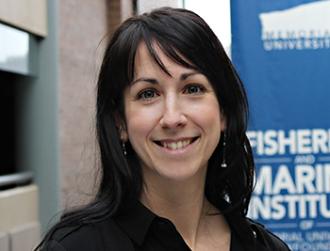This post has taken me longer to write than my average paper. I was asked to do this over a year ago, and the initial draft was full of unimportant details and obvious platitudes like ‘publications are important’, ‘conferences are good for networking’ and ‘try to start getting your name on funding proposals early’. So instead, here are 5 lessons/principles I have learned/am trying to live by as I am moving forward in my academic career.
This is YOUR career
You are the driving force behind your graduate work, thesis, papers, etc. Your supervisor is busy with a hundred other things; you cannot be waiting around for them; it is your job to find the answer to (most) of your questions. Of course their opinion matters, but if you are waiting for revisions on something, move ahead with something else.
Know when to stop
A Ph.D. thesis is really just a ‘hurdle’ that one has to go through, it will never be perfect, it could probably continue forever. Just get it done and keep in mind the law of diminishing return, so you can stop when your work is no longer making significant improvements. I must admit that I never looked at mine again once the final version was printed. If some of your ideas are not fully finished, no worries, you can use those to develop a post-doc proposal and get better paid to pursue them further. Don’t get bogged down, just keep moving. As I continue in academia, I am finding that I have less and less time to polish things up to the level I would like.
It does not get better
At least not yet, ask me again in a few years (maybe after tenure). A Ph.D. can feel very all-encompassing and extremely demanding, but it is really a time of relative freedom, so do try to enjoy it. As I continue in academia, there are just more responsibilities, tighter deadlines and less flexibility. If you are considering graduate school, make sure you know why you are choosing to do so and that it is a good move for your career.
Fake it until you make it
Maybe long-tenured professors do not feel this way (ask me again if I get there), but I am constantly questioning whether I am good/smart/creative/’insert whatever adjective lives in your head’ enough to be pursuing a career in this field. What I mean to say is that you are not the only one. Let’s stop wasting energy on this and let’s just keep going. Every day I pretend I know what I am doing and I am hoping that eventually I will and, in the meantime, hope that not too many people notice (base on my own advice maybe I should not have written this here). At the same time, I try to ask many questions to my very helpful colleagues, after all, they also have had to go through this early stage, and many of them have helped other young colleagues get established.
Be present, don’t feel guilty
This is a new one for me, one I am trying to embrace right now. As an early career researcher with a young family, I am constantly torn. If I am at work, I feel guilty that I was not there for bed time, if I am playing at home, I feel like I should really be finishing that paper. Since these are not particularly productive thoughts, I am trying to fully embrace only what I am doing at the moment (let’s see how it goes).

